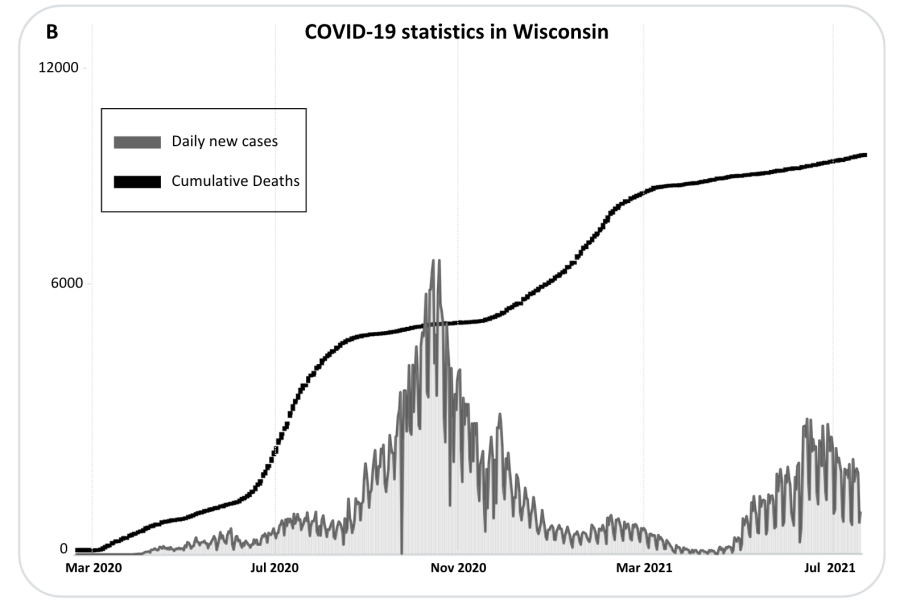Science is a process. Healthcare providers, researchers, and policy makers all play a part in improving people’s health. The REACH Program facilitates research studies across Wisconsin, building upon the work initiated by the Survey of the Health of Wisconsin (SHOW). Each study adds to on our collective knowledge of what factors make people and communities healthy.
The REACH Program focuses on environmental health – how our daily surroundings impact our health and well-being. For example, the air we breathe, food we eat, water we drink, and the hazards we face on the job, all impact our overall health. Findings from REACH studies help to connect the dots between our environmental surroundings and our health.



REACH Program News

Wisconsin microbiome study, a cross-sectional investigation of dietary fiber, microbiome composition and antibiotic-resistant organisms
Shoshannah Eggers et al. This study collected and analyzed biological specimens to explore the relationship between dietary fiber intake, gut microbiota composition, and multidrug-resistant organism (MDRO) colonization. The project involved collecting biospecimens from 600 Wisconsin …

Carbon monoxide awareness and detector use in the state of Wisconsin
Bianca Silva Gordon et al. This study assessed Carbon Monoxide (CO) detector use and awareness in Wisconsin. As a SHOW Ancillary study, the investigators surveyed N=466 participants from unique households in four regions of the …

Biomonitoring of PFAS from the Survey of the Health of Wisconsin (SHOW) and comparison with the National Health and Nutrition Examination Survey (NHANES).
Amy Schultz et al. This study investigated the presence of per- and polyfluoroalkyl substances (PFAS) in the blood of Wisconsin residents, focusing on regional variations and potential health implications. Researchers collected and analyzed blood samples, …

Active transportation, physical activity and gut microbiome diversity
Elizabeth A. Holzhausen et al This study examined the relationship between physical activity, active transportation and gut microbiome composition. Researchers analyzed existing stool samples and physical activity data from 720 Wisconsin residents who participated in …
- More News



